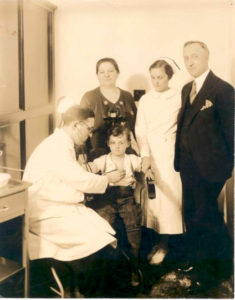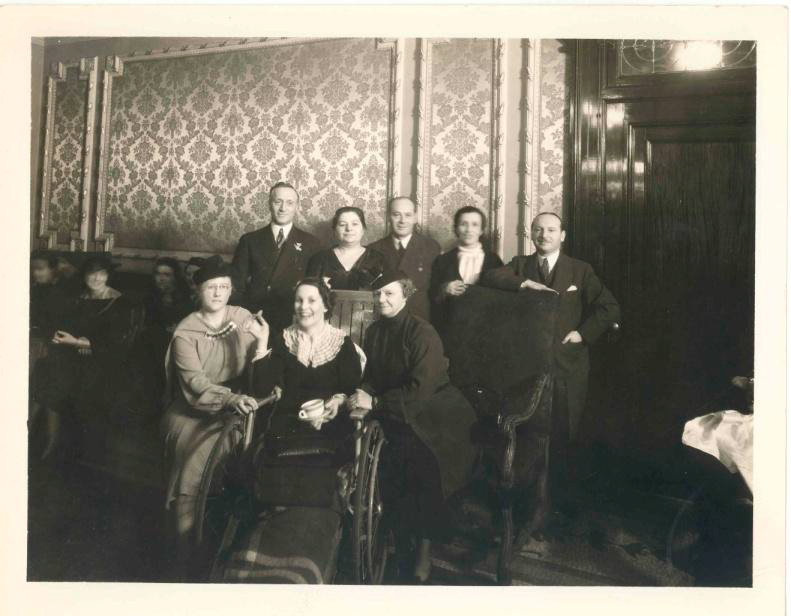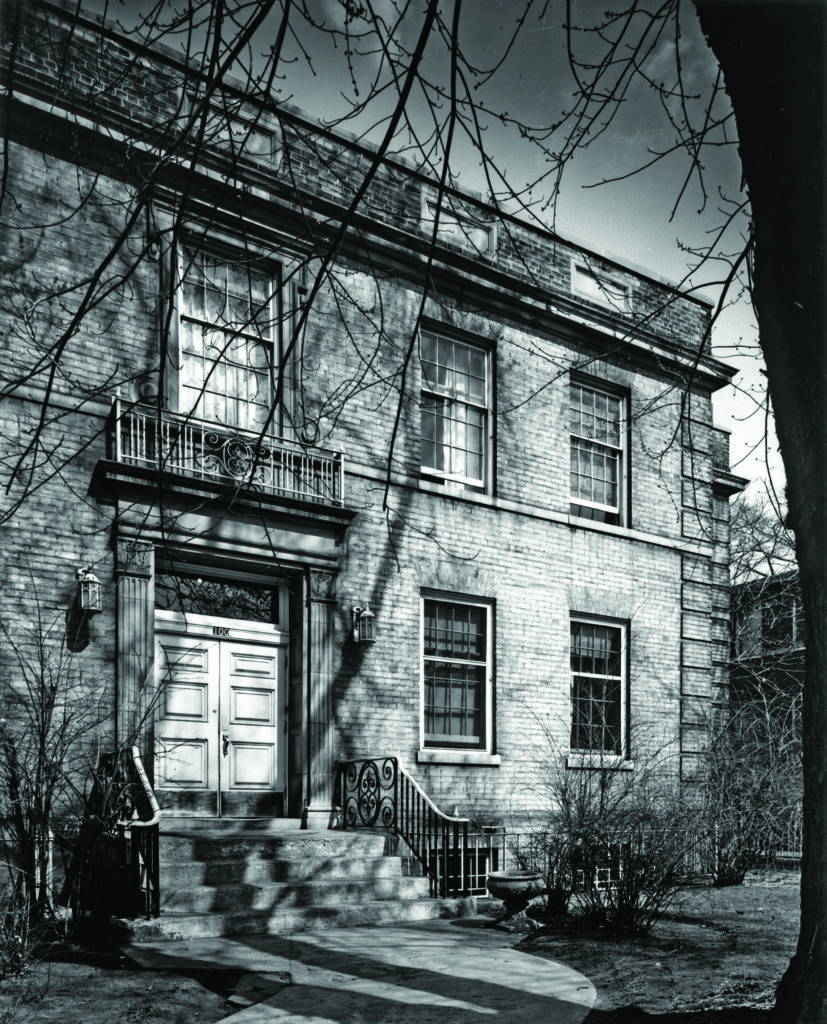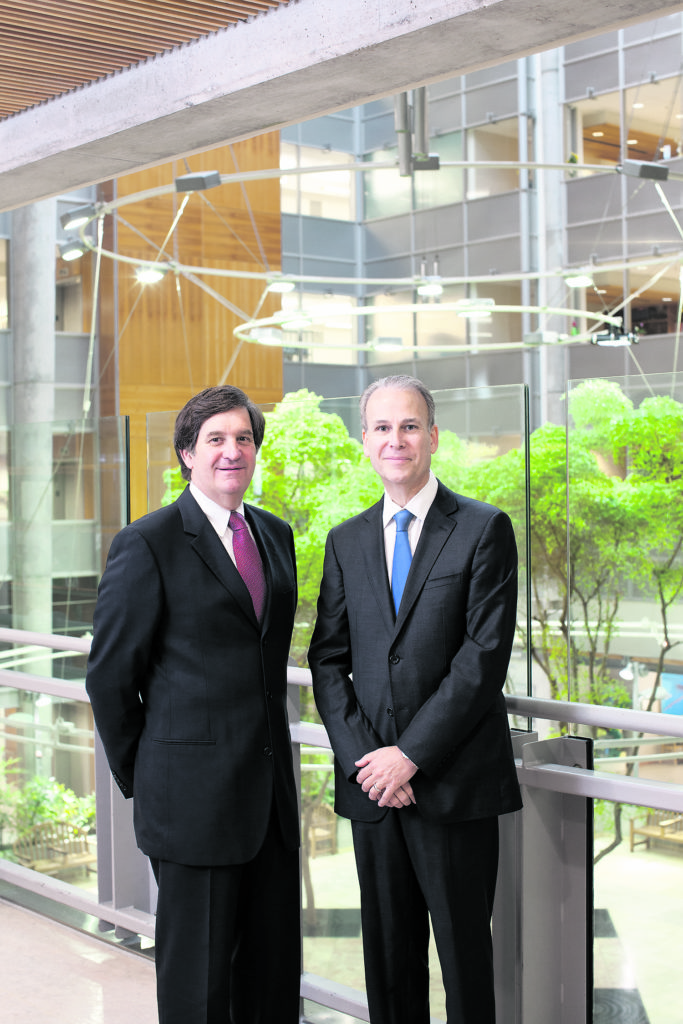Once upon a time, Jews founded medical facilities to care for their own. A lot has changed since then, but those roots still remain
Three years ago during a provincial election campaign in Quebec, a Parti Québécois candidate got into hot water when she suggested Montreal’s Jewish General Hospital (JGH) should drop the “Jewish” from its name and stop performing circumcisions.
Tania Longpré was slammed by her own party for making the suggestion, and one Jewish surgeon at the hospital, Dr. Evan Kovac, now a fellow in urologic oncology at the Cleveland Clinic, rebuked her in a news article, while spelling out the history that led to the creation of a Jewish hospital in the first place.

The JGH is a public institution that heals the sick, regardless of the background of either the patient or the doctor, Kovac noted. It was founded because Jewish doctors faced discrimination and were not permitted to practise in other Quebec hospitals. “To remove the word ‘Jewish’ from its title would deny the important
history of this altruistic establishment” and “would conjure sentiments of anti-Semitism which brought about its foundation in the first place,” he wrote.
Kovac’s history lesson is certainly not unique to Montreal. Jewish communities across North America faced discrimination. According to a 2008 report in the U.S.-based Forward, Jewish communities in 24 American cities founded hospitals in the late 19th and early 20th centuries to address a need among the largely impoverished immigrant Jewish population – to provide medical services that weren’t readily available elsewhere and to provide work for a new generation of Jewish doctors who weren’t allowed to practise in other hospitals.
In Toronto, Mount Sinai Hospital evolved out of the Hebrew Maternity and Convalescent Hospital, which was founded in 1923 at 100 Yorkville Ave. Elsewhere in the city, Baycrest started life in 1918 as the Jewish Old Folks Home at 29 Cecil St.
At the time, the Old Folks Home was established by the Ezras Nashim Society, a women’s mutual benefit society. It was meant to address “the lack of elder care in Toronto. They created a place where kosher meals would be provided and communication with staff could take place in Yiddish,” said Dr. William Reichman, Baycrest president and CEO.

At the Hebrew Maternity and Convalescent Hospital, the story was similar. Historian Allan Levine, in his 2014 book Toronto: Biography of a City, noted that, “A private clinic, set up by Dr. S.J. Kaufman, a young Jewish doctor from Cleveland who had married a girl from Toronto and moved to the city in 1907, provided much needed medical care for The Ward’s Jewish residents. As Dorothy Goldstick Dworkin, a nurse who worked with Kaufman, recalled many years later, the Jews who sought help at the clinic ‘could not speak English and could not make themselves understood at the outpatient clinics of the local hospitals; they could not afford the $1 fee of the private physicians (by 1912, there were five Jewish physicians in the city with offices close to The Ward) and Dr. Kaufman charged only 50 cents in his clinic.’
“When Kaufman and his family returned to Cleveland a few years later, Ida Seigel, a prominent Jewish activist, organized a group which took over the clinic. It became the Jewish Dispensary and evolved in 1923 into The Hebrew Maternity and Convalescent Hospital in a building on Yorkville – following a decade-long fundraising effort – and eventually, the Mount Sinai Hospital.”
In the very early days, fundraising was done by women activists going door to door and asking for small change. Patients were largely Jewish, as were the doctors. But today, Mount Sinai, Baycrest and JGH receive public funds and are accessible by the wider public.
So, in 2016, to what extent can these medical facilities still be considered Jewish hospitals?
According to senior officials at the hospitals, there is more than just a historical connection to their Jewish roots, yet several aspects of hospital practice, especially patient/doctor ethnicity and funding have noticeably changed.
“Our visual identity – our logo has a Star of David at the very centre – and our very name reflect our history,” said Joseph Mapa, president and CEO of Sinai Health System, which includes four institutions – Mount Sinai Hospital, Bridgepoint Active Healthcare, Lunenfeld-Tanenbaum Research Institute and Circle of Care.

“We are strongly anchored in Jewish values. From the very beginning, our founders wanted to build a hospital that opened its doors to the most vulnerable patients, fulfilling values such as pikuach nefesh [saving a life], bikur cholim [visiting the sick] and tikkun olam [repairing the world]. These are also humanistic values that we adhere to as part of our culture, background and values,” Mapa said.
On a more concrete level, the hospital offers patients and visitors a sanctuary, which is a synagogue, as well as a Shabbat elevator. Kosher meals are available upon request.
Yet, where once the preference was given to employing Jewish doctors and treating Jewish patients, this is no longer the case.
At Mount Sinai, “our population reflects the vibrant diversity of our city,” Mapa said. “Jewish patients continue to be part of the hospital’s demographics as they are at various hospitals throughout the GTA.”
Up on Bathurst Street in Toronto, where the Old Folks Home moved in 1954, Reichman noted that “Baycrest was founded by the Jewish community and continues to be guided by the principles embedded within our faith, heritage and culture. We’re proud to be a Jewish hospital and we continue to draw inspiration from the unrivalled support of generations of families within our community and the ethical and cultural values of our Judaic heritage. Our traditions compel us to devote ourselves to helping others in need, while pursuing wisdom through educational attainment and scientific inquiry.”
The number of programs with a Jewish content is extensive at Baycrest, said Rabbi Geoffrey Haber, the centre’s director of spiritual care. They include daily services, including on Shabbat; three rabbis and a number of chaplain interns and volunteers who tend to the spiritual needs of residents; the celebration of Jewish holidays; classes and discussion groups that focus on Jewish topics; and a program called Cafe Europa offered to Holocaust survivors in the wider community.
Rabbi Haber says that “35 to 45 per cent of the hospital’s patients are Jewish. At the Apotex [long-term care facility], the number is closer to 95 per cent Jewish.”
“More than 60,000 clients visit Baycrest annually… with approximately 70 per cent coming from outside the Jewish community,” Reichman added.

Beyond all that, “Baycrest is home to the largest kosher kitchen in Canada,” producing more than one million meals a year, Reichman said.
In Montreal, the JGH’s Jewish values include “a strong emphasis on reverence for life, for preserving life, for treating the patient as a person and not as a case, for respecting the emotional needs of the individual and for respecting the dignity of the individual at every stage of life,” said Dr. Lawrence Rosenberg, president and CEO of West-Central Montreal Health.
“In addition, there is a strong emphasis on education and research, which are considered essential to complement medical care. In essence, Jewish values are universal values which are intrinsic to the JGH as demonstrated in our logo, known as the Tree of Life.
“Those familiar with Jewish tradition may discover that the trunk and branches of the Tree of Life are reminiscent of a menorah (candelabrum), one of Judaism’s oldest and most revered symbols,” Rosenberg said.
As for practical manifestations of the hospital’s Jewish origins, he said, “Certain practices have existed throughout the hospital’s history, including kosher food, a rabbi as the chaplain and mezuzot on the doorposts of almost every room in the hospital.”
Services are held on the High Holidays and sometimes on other Jewish festivals and Shabbat.
“In general, there is a Jewish atmosphere in the hospital because of the presence of artwork and other design features on Jewish themes. The auxiliary sells items with Jewish motifs, and it’s possible to hear Hebrew and Yiddish spoken in various parts of the hospital,” Rosenberg said.
Regarding doctors and patients, Rosenberg said, “While there are many Jewish doctors, we do not keep statistics on the percentage of Jewish doctors… Qualifications and quality matter more than anything else.”
As for the patients being treated, Rosenberg said “there are no hard statistics about the number of Jews who are treated. But approximately 20 to 25 per cent of admissions are Jews.”
Another major change in the way hospitals operate compared to their early days is in their funding. When they opened, mutual benefit societies solicited the Jewish community for the funds needed to open.
“As a publicly funded organization, our main source of operating funds comes from government,” Mapa said. “Philanthropy augments government funding to support research, clinical equipment and capital redevelopment, which ensure we function as a state of the art facility.

“The Jewish community continues to be proud of Mount Sinai Hospital’s Jewish heritage and leadership, and actively supports us in a number of ways, including philanthropically, serving in leadership positions on the board of directors and actively volunteering,” Mapa added.
“Baycrest has long-standing ties with and is strongly supported by the Jewish community,” said Garry Foster, president and CEO of the Baycrest Foundation. “As we’ve grown to serve a larger community, the diversity of donors has grown as well. We’re very proud to have a diverse supporter community of individuals, families, friends and businesses to help us meet the immediate needs of our clients and research new and innovative ways to transform the experience of aging for people worldwide.”
The days of female activists going door to door for nickels and dimes are over, but Jews continue to support the hospitals that serve not only the Jewish community, but the wider one as well.






